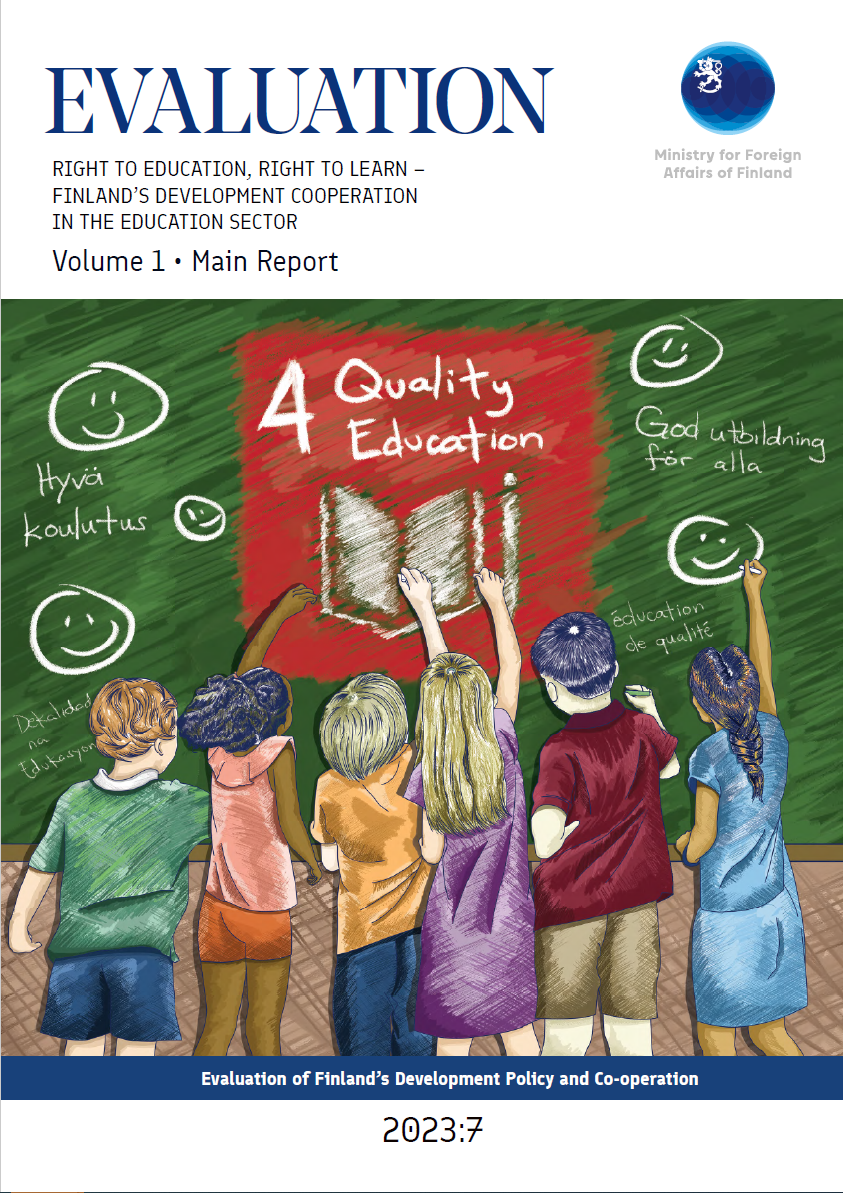Evaluation report: Finland’s development cooperation in the education sector
This independent evaluation examined how Finland has promoted global development in the education sector from 2019 to 2022 and what role it could play in the future. The evaluation analyzed how well multi-actor cooperation has succeeded and what the direction future actions should be.
Finland has demonstrated its commitment to education development cooperation. However, it is crucial that Finland continues and strengthens its commitment, and its reputation may suffer if funding is reduced. Finland's efforts to respond to the global learning crisis remain highly relevant. Achievements include improvements in inclusive education, girls' participation, policies, teaching practices, and school environments. Bilateral cooperation is the cornerstone of Finland's success. The multi-actor approach requires fine-tuning, a shared vision, and better utilization of the potential of different actors.

The evaluation recommends that Finland clarifies its shared vision for multi-actor cooperation in educational development cooperation. The Ministry of Foreign Affairs should allocate its limited resources more strategically and prioritize them better. The focus should be on basic and primary education, particularly in rights-based inclusive education. Additionally, efforts should be made to strengthen education in crisis situations and build resilient education systems. Finland should update the premise of its international role to emphasize the importance of education cutting across the sectors of sustainable development. Improvements in resourcing, coordination and monitoring are needed.
The evaluation was initiated in the autumn of 2022 and is based on a theory of change developed for it, which relies on the Ministry of Foreign Affairs' two most recent result frameworks for the education sector as well as country programs. The findings were based on document analysis, 101 interviews, 49 of which were conducted at the country level, and the Delphi method, involving 27 national and international experts in the field. Country-specific case studies were conducted for Finland's long-term partner countries (Ethiopia, Nepal, Palestine). In addition, two thematic case studies were carried out on vocational education in Ukraine and teacher training in Mozambique.
The evaluation report consists of two volumes:
Summary:
Sustaining Excellence: Finland’s Commitment to Education Worldwide (PDF, 5 pages; 527 MB)
Material from the Presentation Event:
PowerPoint presentation by the Evaluation Team (PDF, 672 kB)
Recording from the event (video)(Link to another website.)
